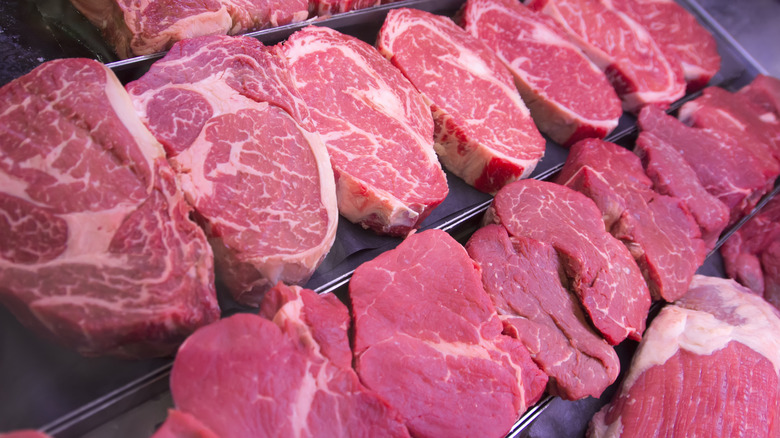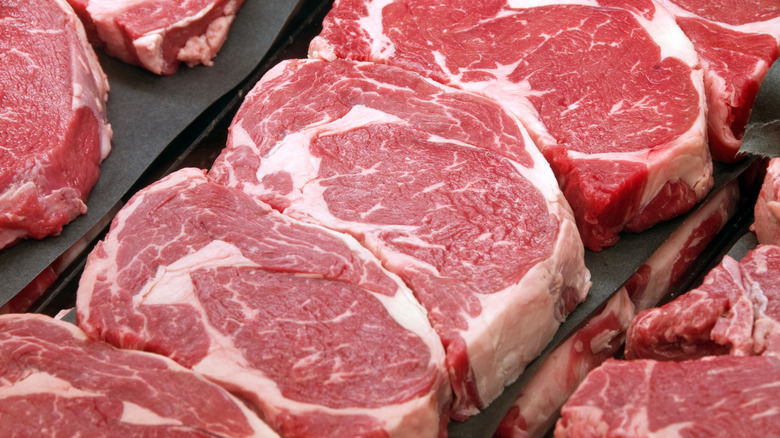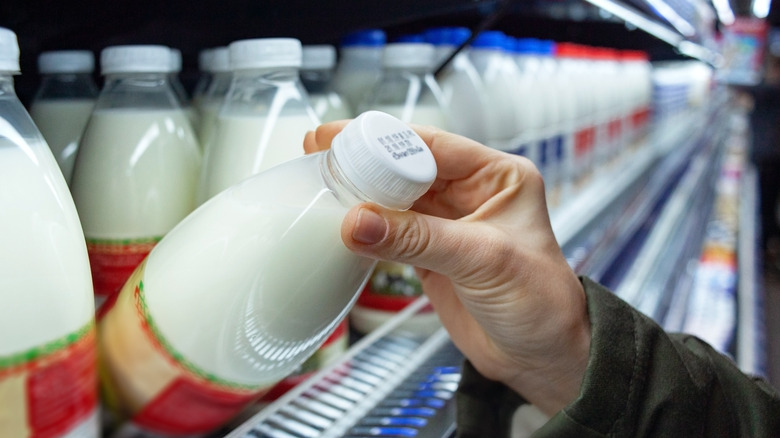How Long Do Grocery Stores Keep Fresh Meat Before Throwing It Out?
Fresh meat is a staple in any grocery store, but there's nothing worse than meat that's gone bad. It's an inevitability that a lot of what's intended for sale is ultimately going to go bad before it reaches a consumer's fridge. Stores don't always throw their expired meat out; sometimes it gets chucked, sure, but sometimes it gets donated to food banks based on whatever laws (and liability concerns) exist in their state, county, or city. Before that, though, they have to figure out whether it's still good to begin with.
So how do grocery stores determine how long to keep meat before they get rid of it? Some of it is based on the general timing of when they get it, but a lot more of it is based on the strength of their own eyes and ears. Basically, groceries stores handle whether a product is still good the same way everyone should be doing.
Grocery stores will keep meat for up to two weeks
The simple answer to how long a grocery store will keep a steak on the shelves is "until it expires." From there, it's a little more variable; that can be 10-14 days, and a lot of this is eyeballing. Certain meats also keep better than others; ten-day-old fish or ground beef isn't going to keep nearly as well as sirloin.
It's also important to note that most grocery stores aren't just taking their advice on whether meat is still good from the manufacturer. Their suppliers give them date codes, but they also use their own best judgment. Grocery stores tend to attach best-by stickers in-house, and this is especially true anywhere an in-house butchery department cuts or grinds the meat themselves. This frequently gives the product a more accurate expiration date than a brand would (since the grocery store employees have more direct contact with the food and can tell how it looks).
Sell-by dates are still totally made up
It's important to note here that if you're trying to determine whether any food product is still safe to eat, you should never just go by the sell-by or expiration date. These dates are not arrived at scientifically and are ultimately just the company's own estimate of when the food will be at peak quality. There is little to no regulation in this area, and sell-by dates are just made up.
However, that doesn't mean you shouldn't check whether food is still good! But the best way to figure it out isn't some magic number on the packaging; it's your own eyes and nose. If it's moldy, you shouldn't eat it (unless it's a hard cheese or something with similar exterior toughness, in which case you can just cut the mold off). And if it smells wrong, chances are it is, in fact, wrong; don't drink milk that smells off, for example.
Ultimately, it's just about knowing what to look for and making sure you're paying attention. Don't trust brands themselves to tell you whether food is still good when you can easily determine it for yourself.


